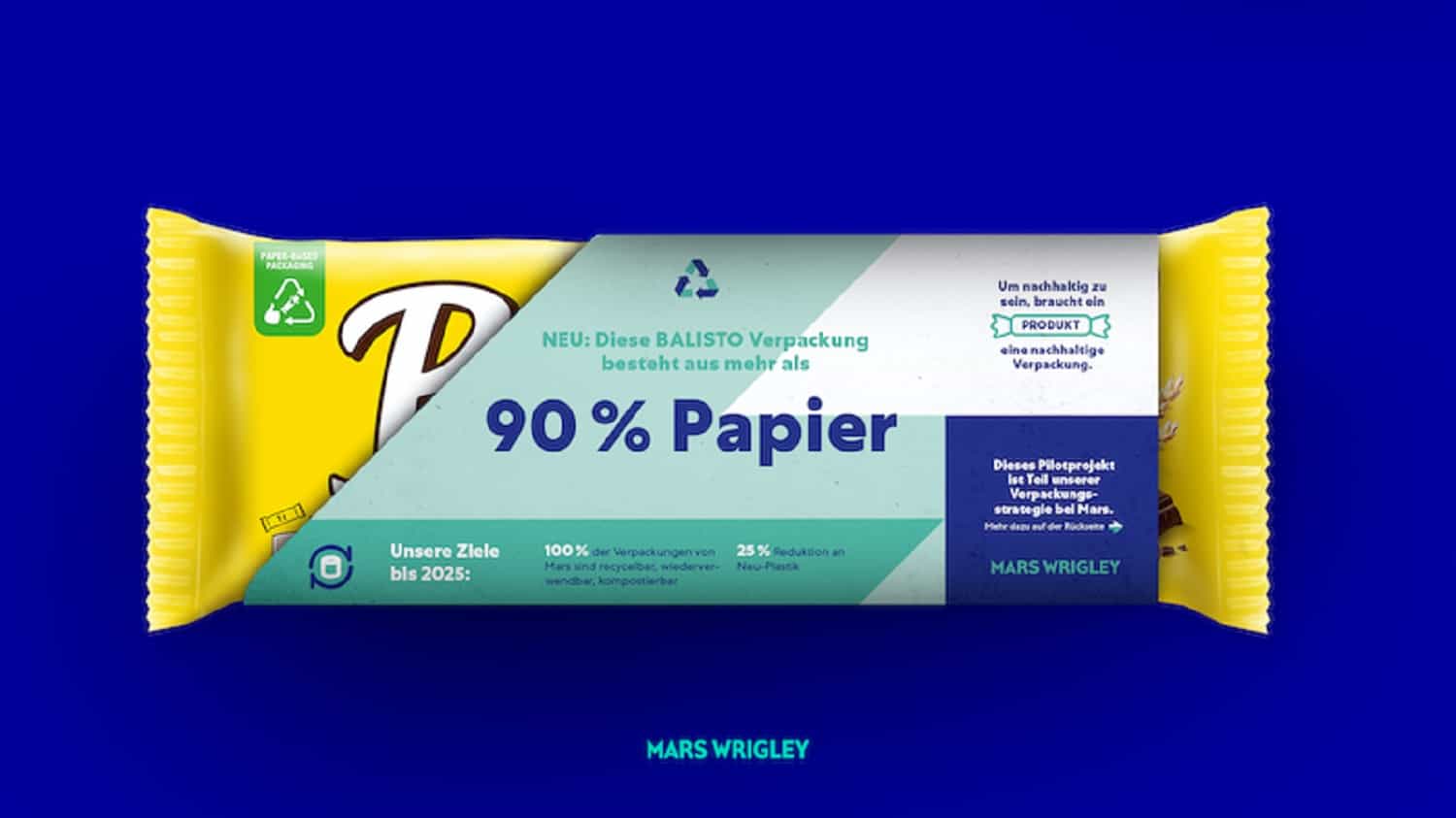Mars Wrigley Germany has become the latest major brand offering a chocolate bar series, the Balisto, in a paper-based packaging for the first time, in a deal with its retail partner German retail partner EDEKA Minden-Hannover, writes Neill Barston.
The move follows a similar announcement from Nestle as it moves away from plastics used in its Smarties chocolate range, which is anticipated to herald a significant wider shift from the industry in making major environmental improvements.
As Mars explained to Confectionery Production, more than 90 percent of the packaging of the 100,000 multipacks (each contains 9 single bars) is made of paper. With its latest move, the company reduces the use of packaging plastic by around 440 kilograms. The sustainable Balisto multipacks (illustrated below) will be available in more than 500 EDEKA markets in the region this month.
In addition, the venture will be just one of many projects launched worldwide this year in all Mars business areas. The company’s goal is to make all packaging reusable, recyclable and compostable by 2025 and to reduce the consumption of new plastic by 25 percent.
Laurence Etienne, Managing Director Mars Wrigley, Germany, commented: “A product is only truly sustainable if it is also sustainably packaged. For the first time we offer a chocolate biscuit bar in paper. We are pleased to implement this important step in our global packaging strategy here in the German market.
“Our packaging should be part of the circular economy so that no packaging becomes waste. To this end, we invest in sustainable solutions and the development of recycling systems and work closely with partners such as the Ellen MacArthur Foundation.”
The intensive cooperation with EDEKA Minden-Hannover, Germany, is a cornerstone of the project. and as the business noted, its key considerations were that packaging systems must maintain optimal taste and quality, and, on the other hand, it must reliably protect the product from contamination and moisture.
Significantly, the packaging developed for Mars from special paper is more than 90 percent natural fibres and is FSC and PEFC certified. A thin barrier coating protects the chocolate and prevents it from being greased outwards. The project will show how the paper material proves itself in practice, for example in the production and assembly in the factory located in Viersen Germany, during transport and on the shelf. Furthermore, the business added that how customers accept sustainable packaging is also crucial to success.
“We are delighted to be part of this pilot project. EDEKA MindenHannover itself has been working for years as part of its sustainability strategy for the use of sustainable packaging as well as for the reduction of plastic waste,” says Dirk Koerner, Managing Director Purchase at EDEKA Minden-Hannover.
As the company concluded, lessons learned fro its pilot schemes will feed into the future design of the packaging for the Mars chocolate bar portfolio. The launch of the Balisto pilot project is seen by the business as an important step towards achieving its sustainability target. The firm’s packaging strategy specifically aims to avoid unnecessary packaging and to use recyclable materials.







